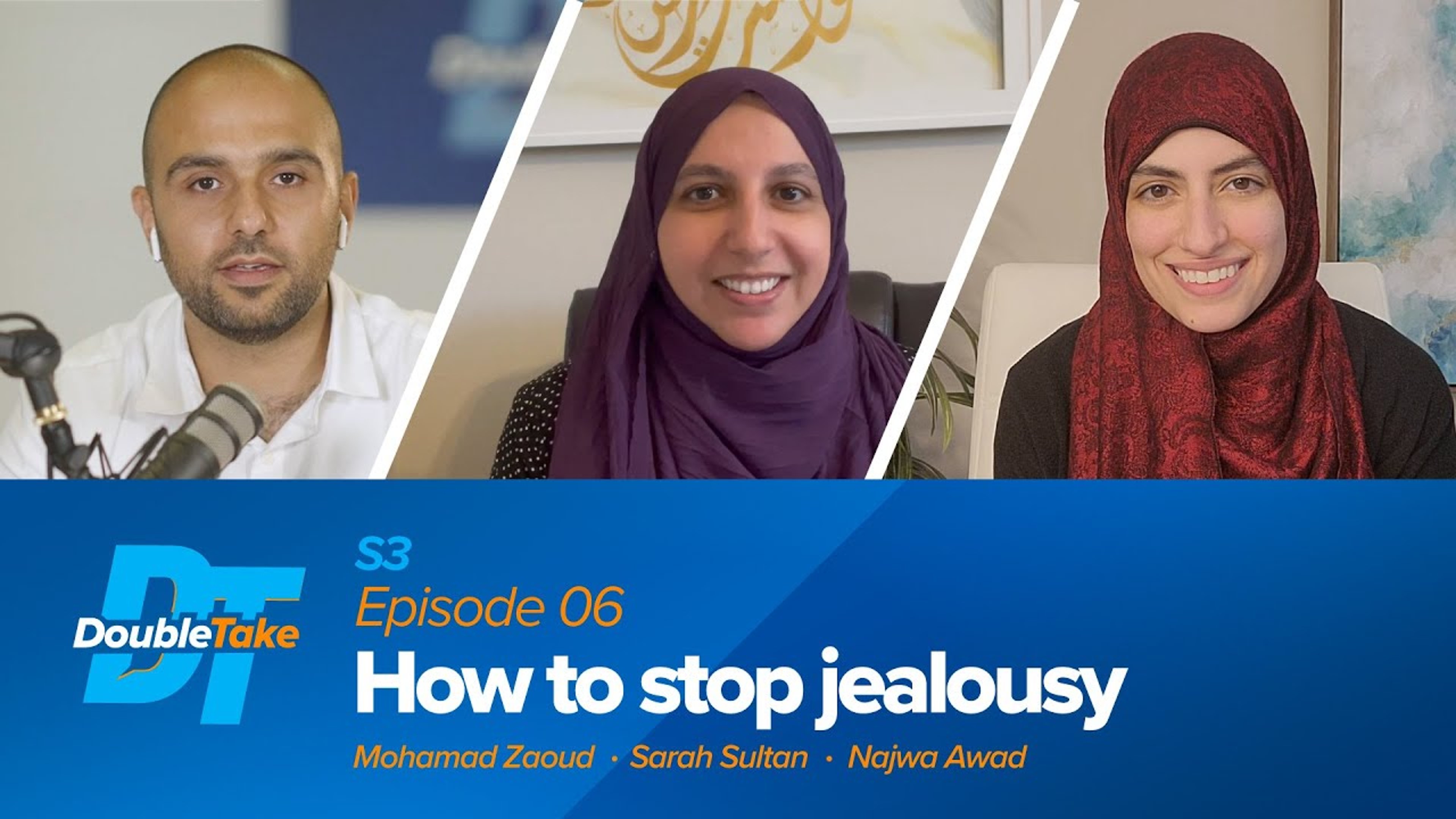Jump to:
DoubleTake Podcast
S3 E6: How to Stop Being Jealous | Doubletake
Listen on your favorite podcast app!
Jealousy can be psychologically and spiritually devastating if it goes unchecked, but that doesn’t have to be the case.
How can we detect jealousy before damage is done? What role does social media play in worsening these feelings? How can we remove jealousy from our hearts and protect ourselves from feeling it again?
In the second episode of a two-part special, host Mohamad Zaoud talks to Sr. Sarah Sultan and Sr. Najwa Awad, co-authors of the Yaqeen Institute paper, “‘Why Is Everyone’s Life Better than Mine?’ Protecting Yourself from the Dangers of Comparison.”
Listen on:
Apple
Google
Spotify
Other platforms
Share your feedback!
